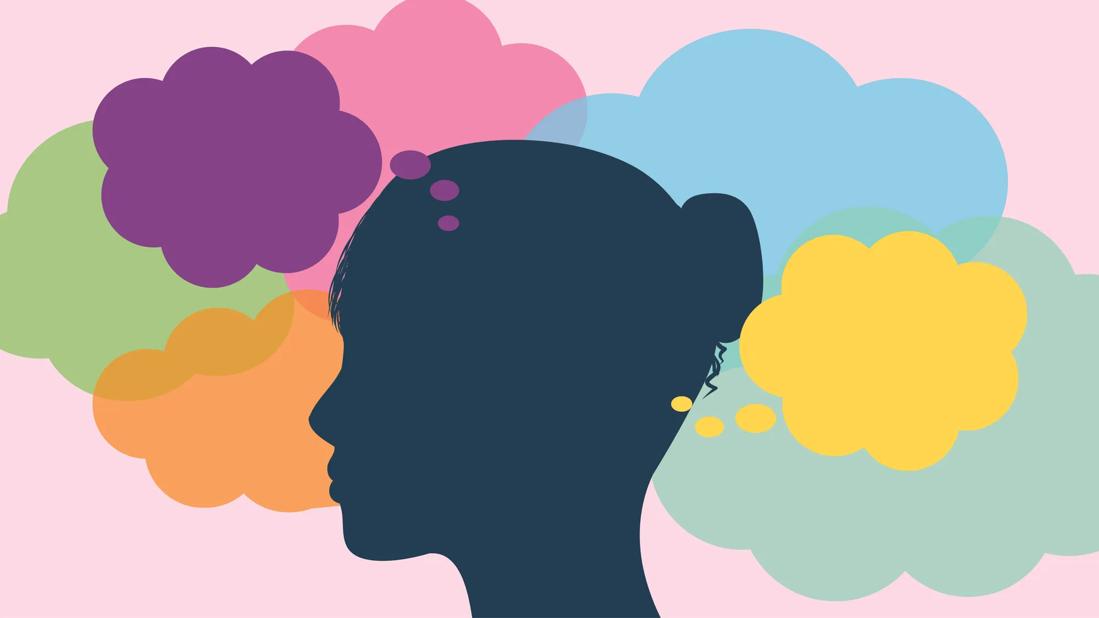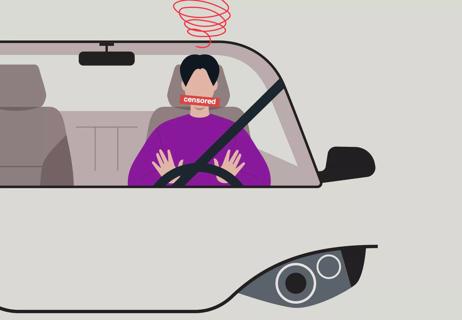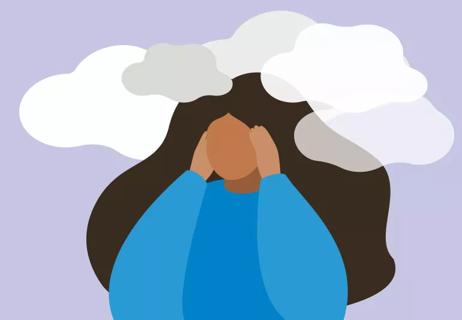These unwanted thoughts, images or urges are often violent, disturbing and not aligned with your values — but they don’t mean you want to act on them

Sometimes, an absolutely shocking thought crosses your mind, seemingly out of nowhere, like envisioning punching someone or letting your car veer into traffic. Understandably, such thoughts catch you by surprise, causing alarm and concern.
Advertisement
Cleveland Clinic is a non-profit academic medical center. Advertising on our site helps support our mission. We do not endorse non-Cleveland Clinic products or services. Policy
You need to know: Why would these horrible scenarios even enter your head?!
They’re called intrusive thoughts, says psychologist Lauren Alexander, PhD, and they’re not uncommon. Here’s what they can look like and where they may stem from.
“Intrusive thoughts are thoughts, images or urges that are unwanted but pop into your mind anyway,” Dr. Alexander reports. “They’re often violent, disturbing or unnerving in nature.”
Though intrusive thoughts are often discussed in relation to obsessive-compulsive disorder (OCD), anyone can have them.
Here are some of the ways they may appear:
Importantly, the more you try to ignore an intrusive thought or push it away, the more likely it is to stick in your mind. Per the American Psychological Association’s definition, intrusive thoughts “interrupt the flow of task-related thoughts in spite of efforts to avoid them.”
Advertisement
Though this certainly isn’t a comprehensive list of types of intrusive thoughts, it may help you better identify and label your own.
This is the most common category of intrusive thoughts and includes persistent worry about relationships (“My friends all secretly hate me”), as well as tasks (for example, “Am I sure I locked the garage door?” or “I could’ve bumped into the stove accidentally turning it on before I left home”).
You might experience persistent worries about doing something humiliating in front of other people, like falling down the stairs, blurting out something inappropriate at work or farting during yoga class.
These intrusive thoughts can arise even if you’ve never had suicidal ideations or seriously considered hurting yourself. For example, you could be cutting vegetables and suddenly imagine stabbing your hand. Or while standing over a beautiful scenic overpass, you imagine what it’d be like to jump.
Violent intrusive thoughts can be deeply distressing and at odds with your values and intentions, making you think about things you’d never do, like slapping a stranger or committing a terrible crime.
One study found that 70% to 100% of new moms had intrusive thoughts about something bad happening to their baby; half envisioned being the one to cause that harm.
Intrusive thoughts about “contamination” can cause you to obsess over germs or illness, even when the risk is low — for example, “If I touch that elevator button, I might get sick” or “The doctor says I just have a cold, but what if it’s actually cancer?”
Negative self-talk like “I’m such a loser” and “Nobody even likes me” are types of intrusive thoughts that can both stem from and contribute to low self-esteem.
This especially upsetting category of intrusive thoughts can cause you to think about sexual activities that are taboo, violent, harmful or otherwise upsetting. These thoughts can be especially difficult to discuss with others, including a therapist, because of the stigma associated with them.
If you’ve experienced a traumatic event in your past, like a car accident, deployment, sexual assault or natural disaster, intrusive thoughts can appear as flashbacks, memories or little blips of thoughts or mental images. These thoughts are common with post-traumatic stress disorder (PTSD).
Cultural and faith-based intrusive thoughts can include persistent fears that you’ll upset God or accidentally do something that goes against your religious beliefs.
Because intrusive thoughts can be so surprising and upsetting, it can feel like there must be a reason for them. But that’s not always the case. “Sometimes, they’re completely random, and you go, Wow, where did that come from?” Dr. Alexander shares.
Advertisement
Ever wondered what it would feel like to fly or what you’d look like with rainbow-colored hair? These out-of-the-blue thoughts are harmless, so they don’t stop you in your tracks like intrusive thoughts do. But they don’t really originate anywhere either, illustrating the fact that sometimes, unexpected thoughts simply appear.
But intrusive thoughts can stem from other conditions, too:
Advertisement
Yes. One study found that nearly 94% of participants experienced at least one intrusive thought within the past three months!
And having intrusive thoughts doesn’t say anything about your character or your values. In the moment, thinking something scary or disturbing can make you feel deeply ashamed. But having a thought doesn’t mean you want to act on it. Remember: A hallmark of intrusive thoughts is that they’re unwanted. They’re thoughts you don’t want to have, about actions you don’t want to take.
“People often believe that if they have a thought, it’s true — and that if they keep thinking it over and over again, then it’s especially true,” Dr. Alexander acknowledges. “But just because you have a thought doesn’t make it true. Unless you act on it, it doesn’t have any bearing on reality.”
Fortunately, there are steps you can take to stop intrusive thoughts and let them pass you by. Strategies like mindfulness and grounding techniques, along with psychotherapy, can help.
“You can’t change anything that’s led up to the moment you’ve had this intrusive thought,” she continues, “but you can respond differently to it so that it doesn’t become more of an issue than it actually is. It’s just a matter of finding and using the right strategies to help you cope.”
Advertisement
If you’re worried for your safety or the safety of others, seek immediate help by calling 911 or your local emergency hotline. In the U.S., you can also call or text the 988 Lifeline.

Sign up for our Health Essentials emails for expert guidance on nutrition, fitness, sleep, skin care and more.
Learn more about our editorial process.
Advertisement

Cognitive distortions are ‘thought traps’ that keep you from objectively interpreting your thoughts

These intrusive thoughts are common and fleeting, and aren’t often a cause for concern, unless you have other mental health symptoms

Grounding techniques, cognitive defusion and various types of talk therapy can all help

Inductive and deductive reasoning are thought patterns your brains uses to help you make decisions

Foul language may be beneficial, but it won’t make you smarter

Brain fog has many symptoms and many possible underlying conditions

Even small moments of time outdoors can help reduce stress, boost mood and restore a sense of calm

Exploring your hidden side can lead to better understanding of what makes you tick

Even small moments of time outdoors can help reduce stress, boost mood and restore a sense of calm

A correct prescription helps your eyes see clearly — but as natural changes occur, you may need stronger or different eyeglasses

Both are medical emergencies, but they are very distinct events with different causes